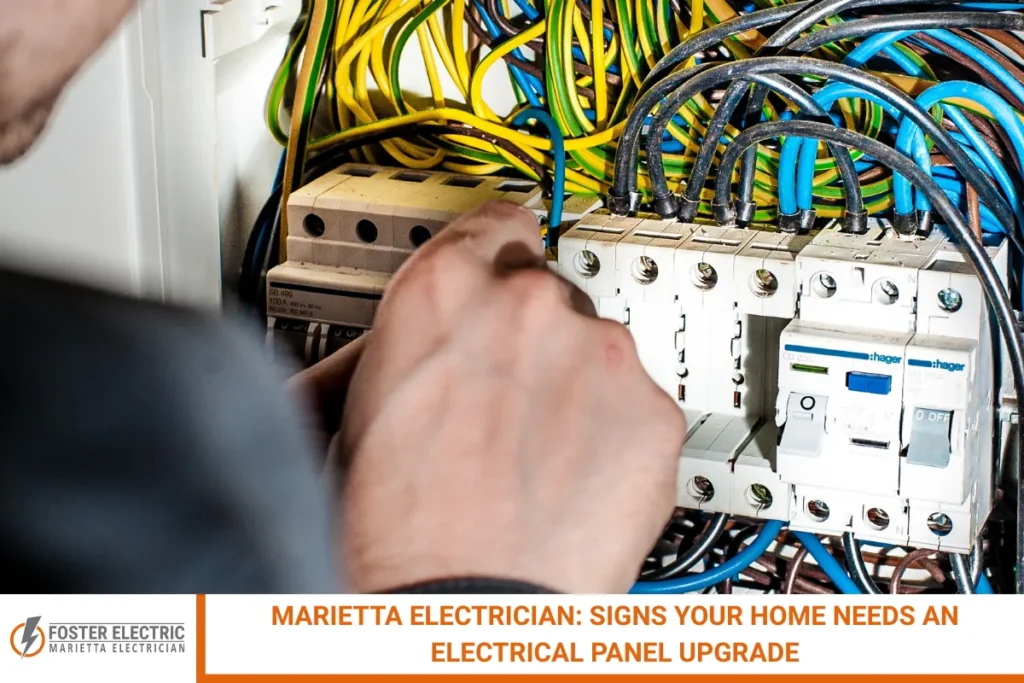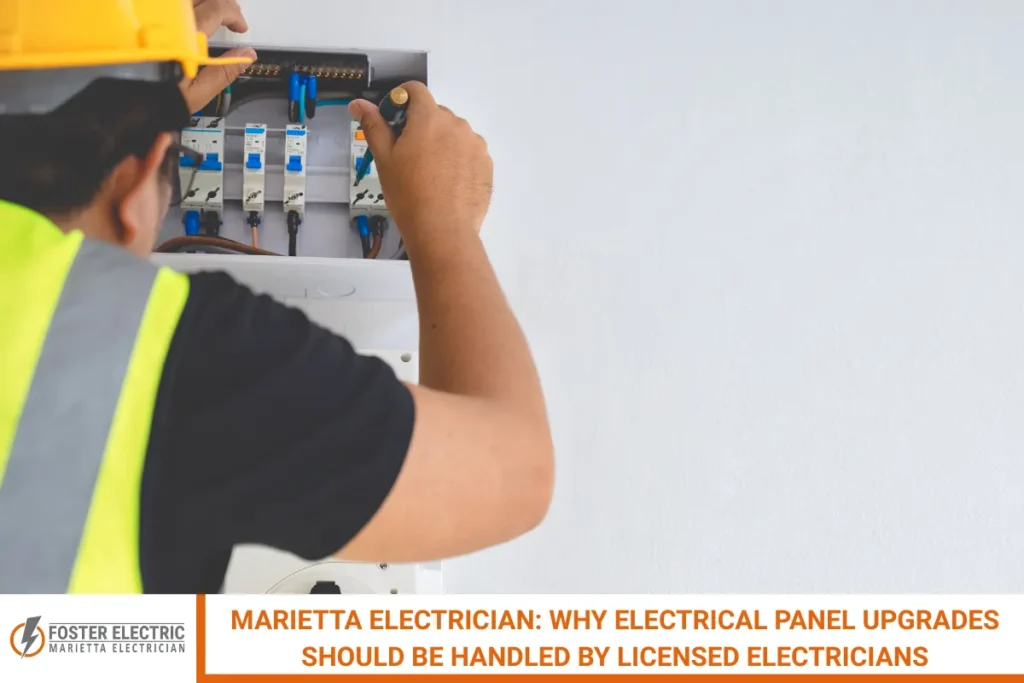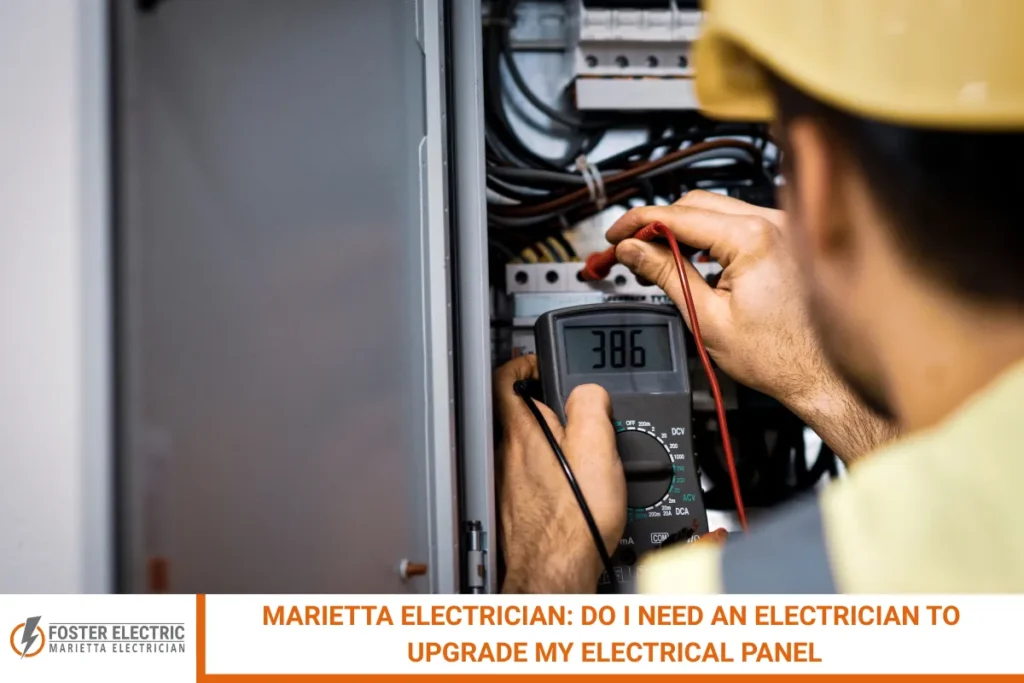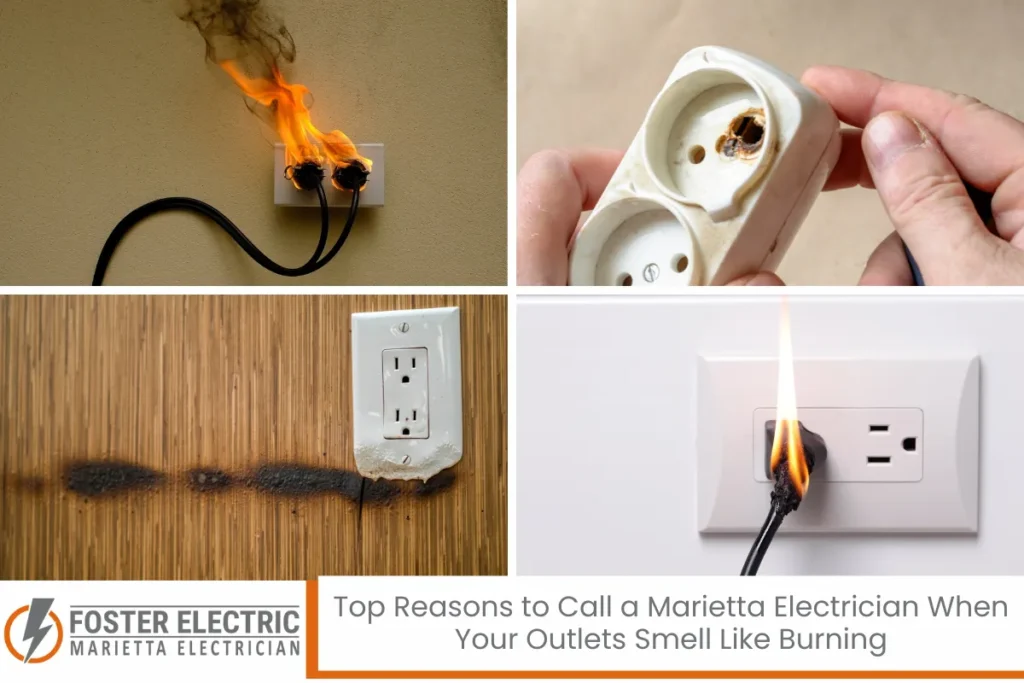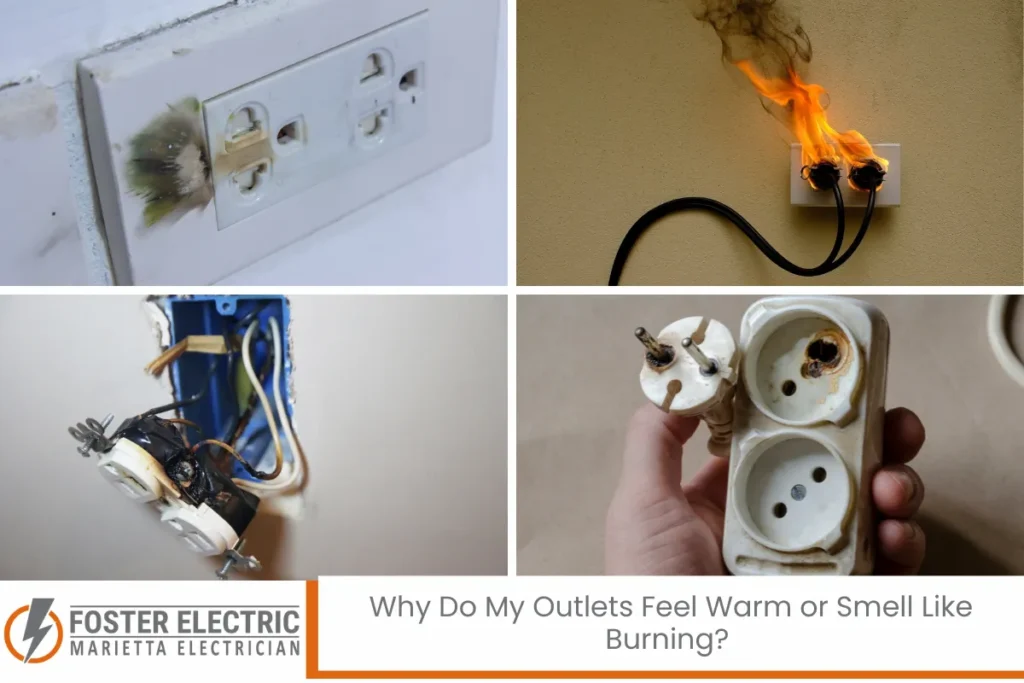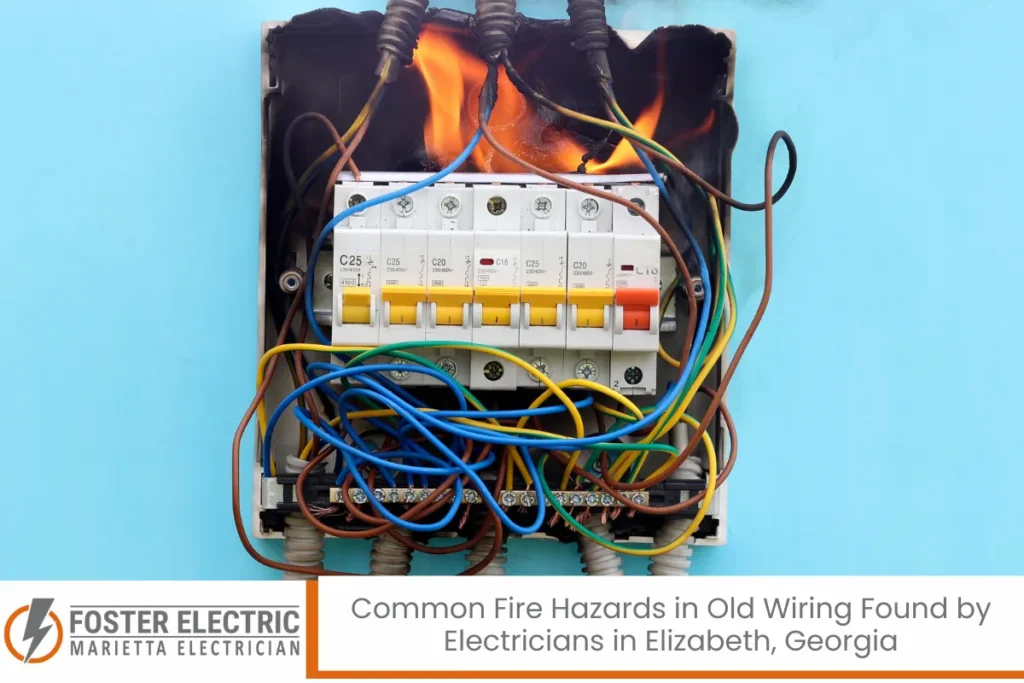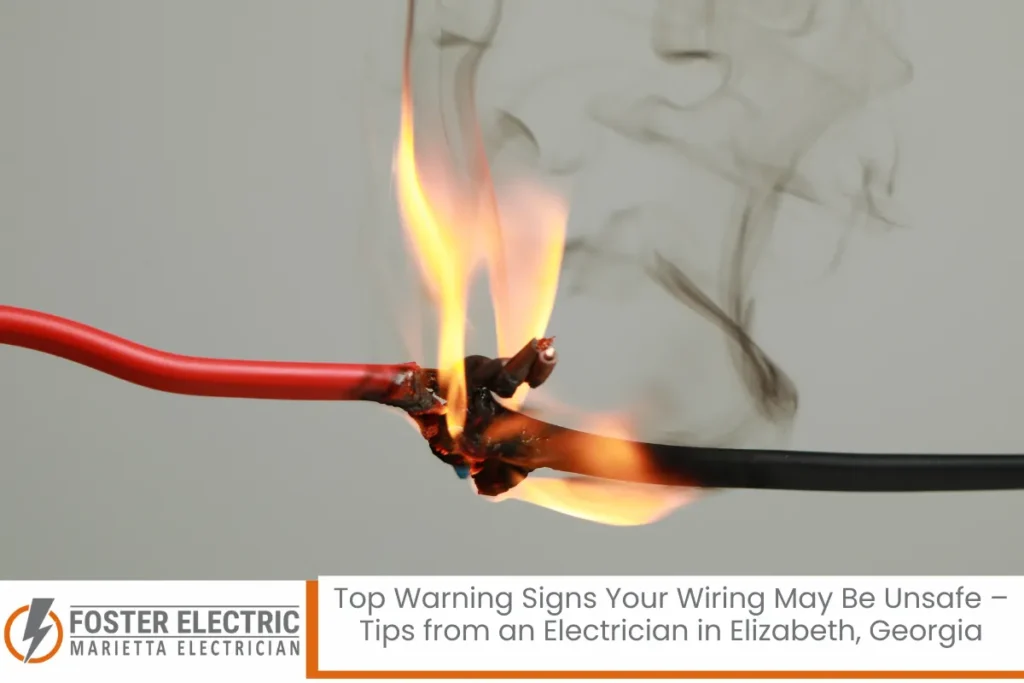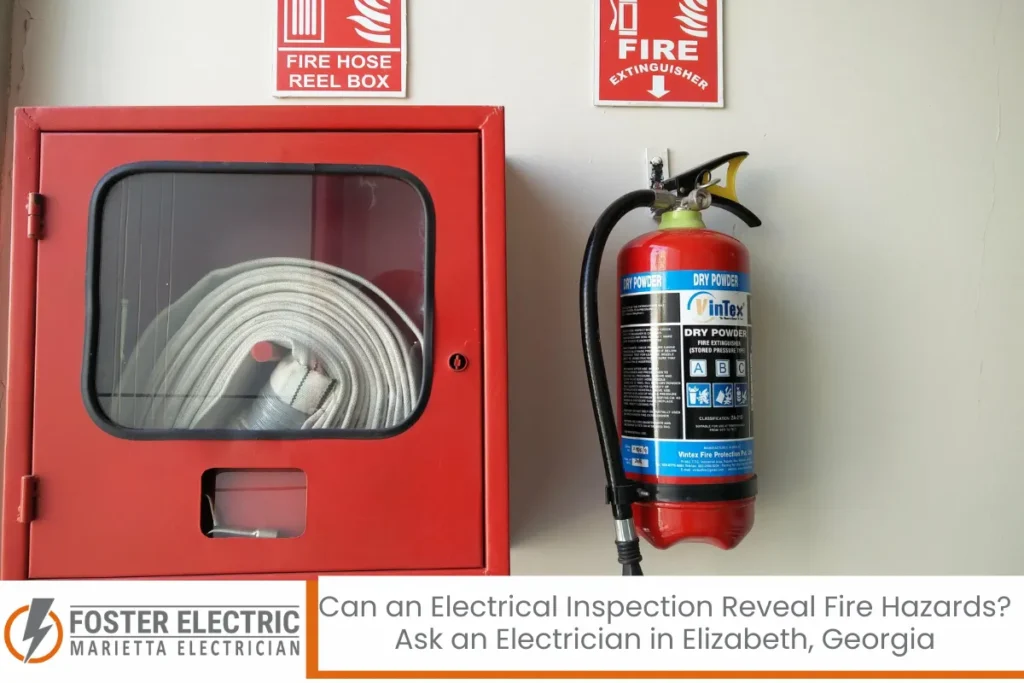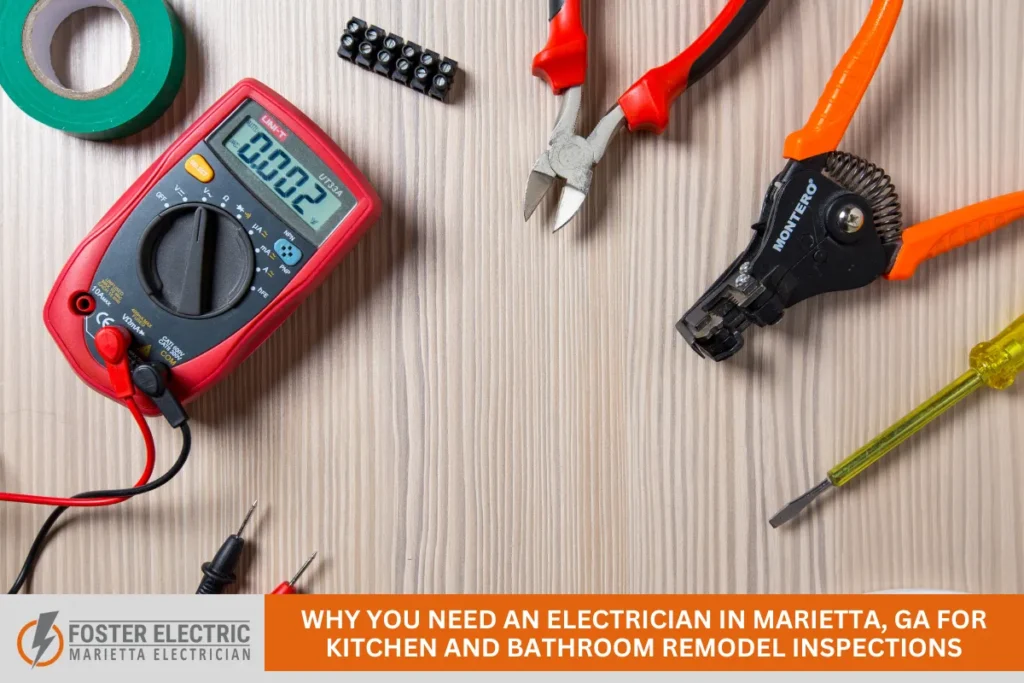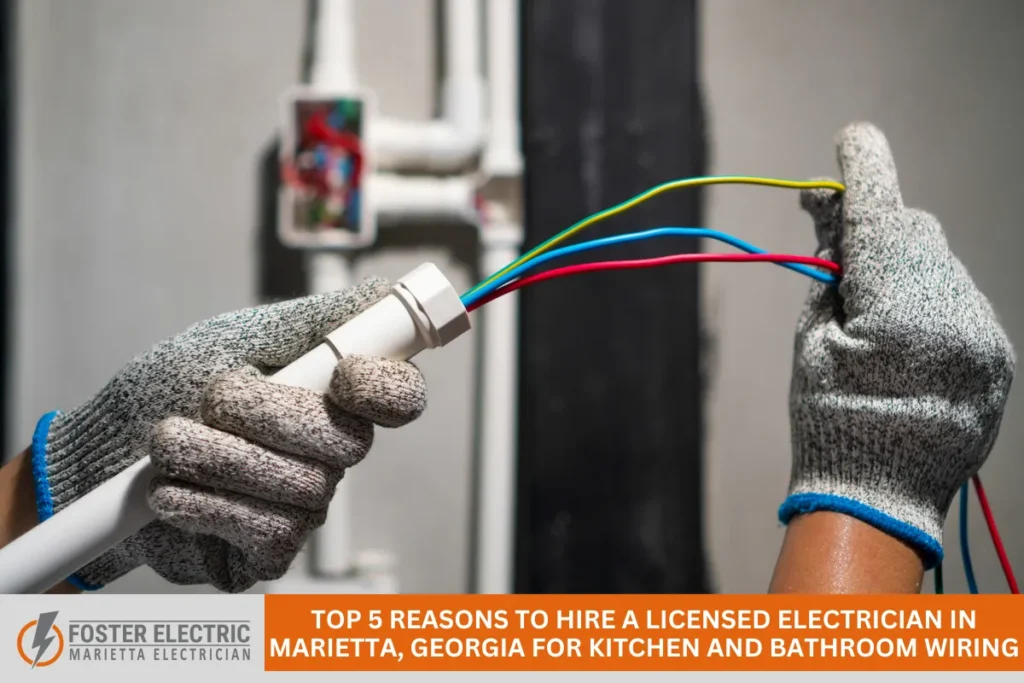Stay Safe With These Electrical Red Flags
An electrician will always tell you that one of the most overlooked dangers in any home is faulty wiring. Wires run through your walls, ceilings, and floors, quietly powering everything from your lights to your fridge. But when those wires are damaged, outdated, or installed incorrectly, they can quickly become hazardous. Fires, electric shocks, and damaged appliances are just a few of the potential outcomes.
In Elizabeth, Georgia, many homes still rely on older electrical systems that may no longer meet safety standards. That’s why knowing the warning signs of unsafe wiring is essential. Whether your home is newly purchased or decades old, these signs shouldn’t be ignored. This article provides a comprehensive breakdown of key indicators, explains the underlying causes, and outlines the specific steps to address them, all based on the expertise of licensed professionals.
Frequent Circuit Breaker Trips
Circuit breakers are designed to shut off the flow of electricity when there’s too much demand on a circuit. This is a safety feature meant to prevent overheating and electrical fires. However, if your circuit breaker trips often, it’s usually a symptom of a deeper issue.
Tripped breakers can be caused by:
- Circuits overloaded with too many devices
- Short circuits due to damaged wiring
- Ground faults happen when electricity strays from its path
- Aging electrical panels that can’t keep up with demand
This issue shouldn’t be brushed off as a minor inconvenience. A constantly tripping breaker is your home’s way of signaling danger, and it requires the attention of a qualified electrician who can assess the capacity and safety of your system.
Buzzing or Crackling Sounds From Walls or Outlets
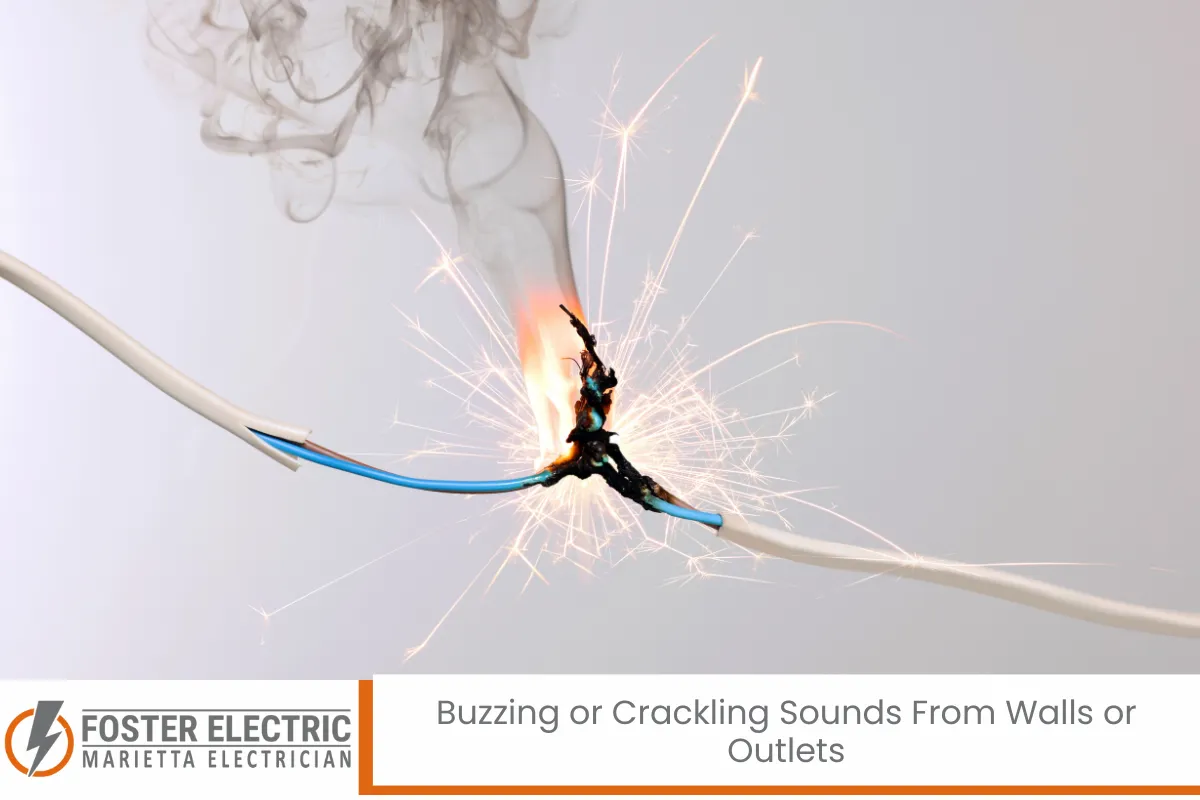
Electricity should never be noisy. Any buzzing, popping, or crackling sounds coming from your walls, outlets, or switches should be taken seriously. These noises typically occur when there’s a problem with the connections behind your walls.
Some causes include:
- Loose wiring connections
- Arcing (where electricity jumps across gaps in wiring)
- Damaged or exposed wires
- Deterioration of insulation around wires
These sounds often indicate that wires are sparking, which is one of the leading causes of electrical fires in homes. An electrician can track the source of the noise, inspect the wiring, and either repair or replace the affected components to prevent a disaster.
Burning Odors and Discolored Outlets
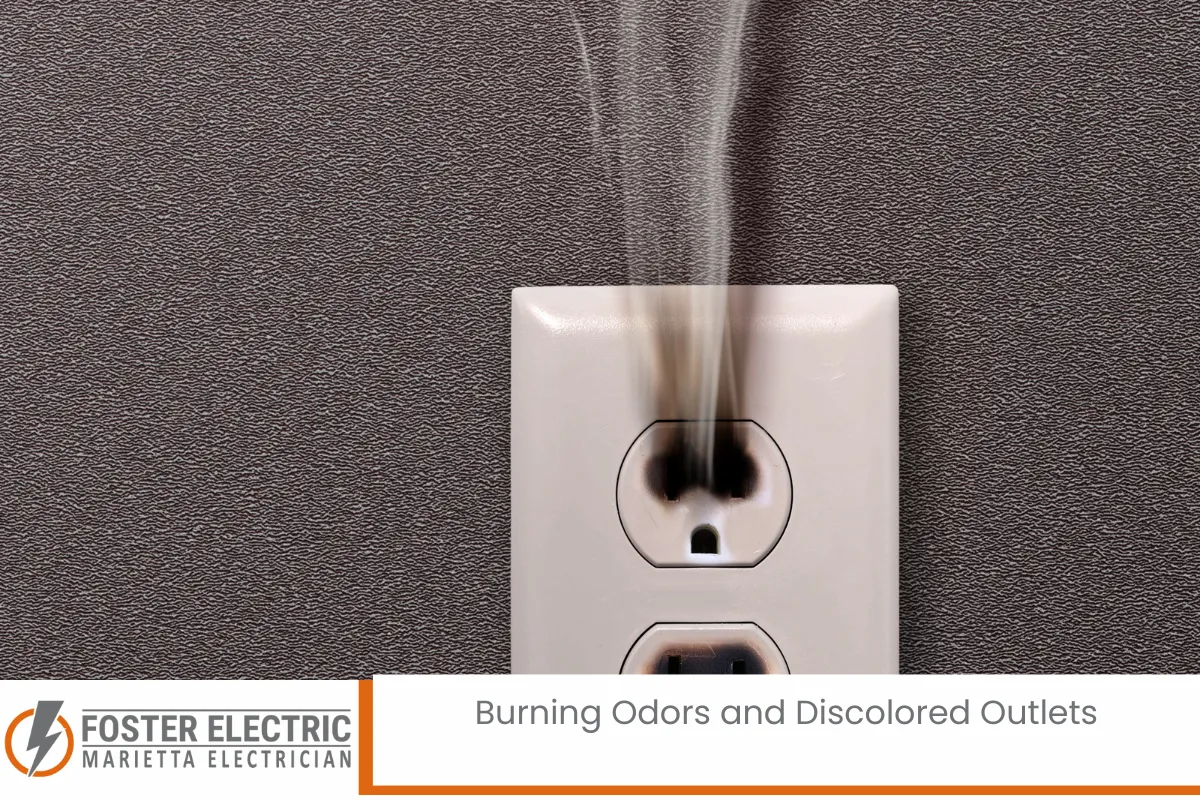 Warm or Hot Outlets and Switch Plates
Warm or Hot Outlets and Switch Plates
Any burning smell in your home should never be ignored, especially if it’s coming from an outlet, switch, or electrical panel. These odors can be subtle at first, like the faint scent of melting plastic or a slight smokiness in the air.
Burning smells usually result from:
- Overheated wires
- Loose connections generate heat
- Melting insulation
- Short circuits behind the wall
In some cases, the heat can cause visible damage. Outlets may appear scorched or discolored, sometimes even warm or hot to the touch. An electrician will inspect the circuits involved and ensure the heat hasn’t spread to other parts of the wiring.
Lights That Flicker, Dim, or Pulse
Flickering or dimming lights aren’t just annoying—they’re a red flag for underlying wiring issues. Some homeowners might blame it on old bulbs, but if replacing the bulb doesn’t fix the problem, the issue lies deeper.
This often happens because:
- Wiring is becoming loose
- Your home has voltage fluctuations
- There are overloaded circuits
- The circuit is shared with large appliances
In Elizabeth, Georgia, older homes often have outdated electrical systems not built to support modern lighting and appliances. A local electrician will know how to safely upgrade your circuits so your lighting is consistent and safe.
Warm or Hot Outlets and Switch Plates
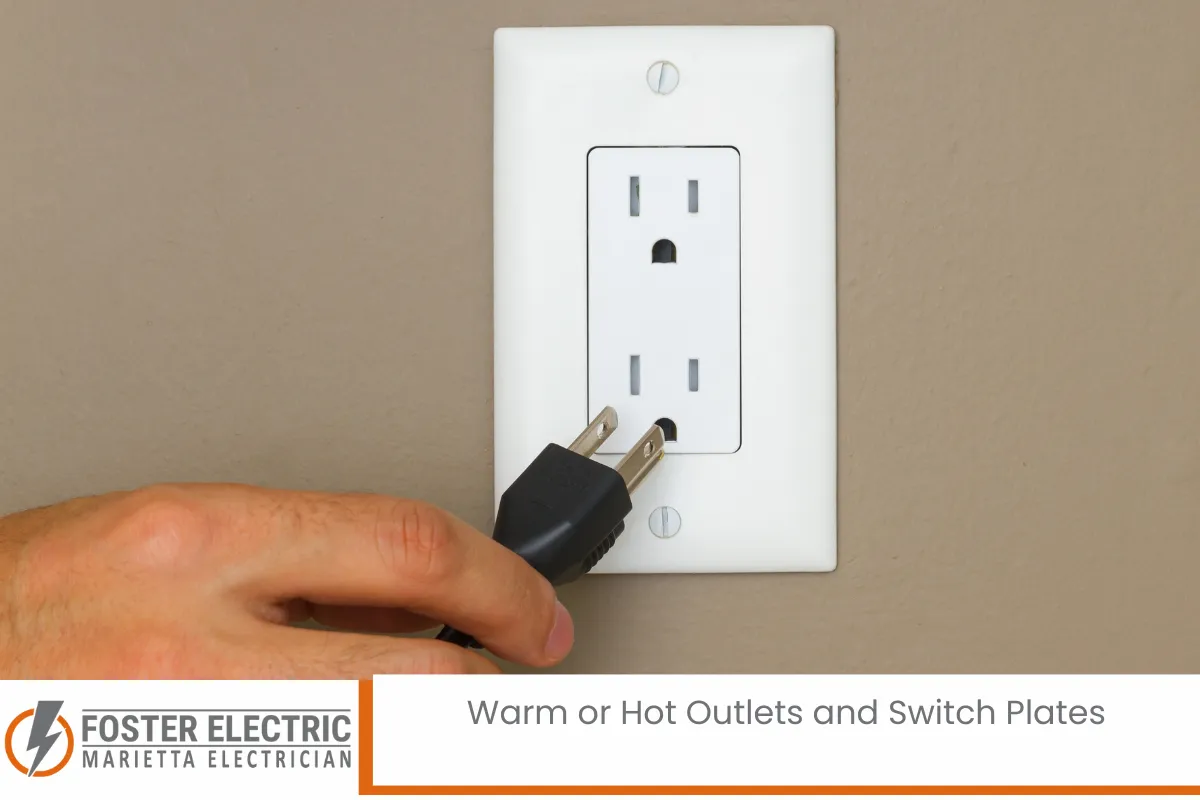
Outlets and switches should always feel cool or at room temperature. If they feel warm, something is wrong. Heat means electricity isn’t flowing properly and is being converted into energy that can damage your electrical system—or worse, start a fire.
This may be caused by:
- Too much electrical current is being drawn
- Poor wire connections
- Old or degraded receptacles
- Plugging in high-power appliances like heaters or air fryers without circuit support
Don’t wait until you see smoke. Contact an electrician who can determine whether the issue is isolated or a symptom of a larger wiring failure.
Loose Plugs, Switches, or Outlets
A plug that falls out easily or wobbles when inserted might not seem urgent. Still, it signals a potential shock hazard. Loose outlets or switches can lead to poor connections, which generate heat and allow electricity to arc.
Loose fittings are typically caused by:
- Worn-out components
- Damaged internal prongs
- Poor installation
- Age and frequent use
Electrical arcing is a common cause of house fires. Fixing it often involves replacing the outlet and checking nearby wiring for heat damage or signs of wear.
Aluminum Wiring in Older Homes
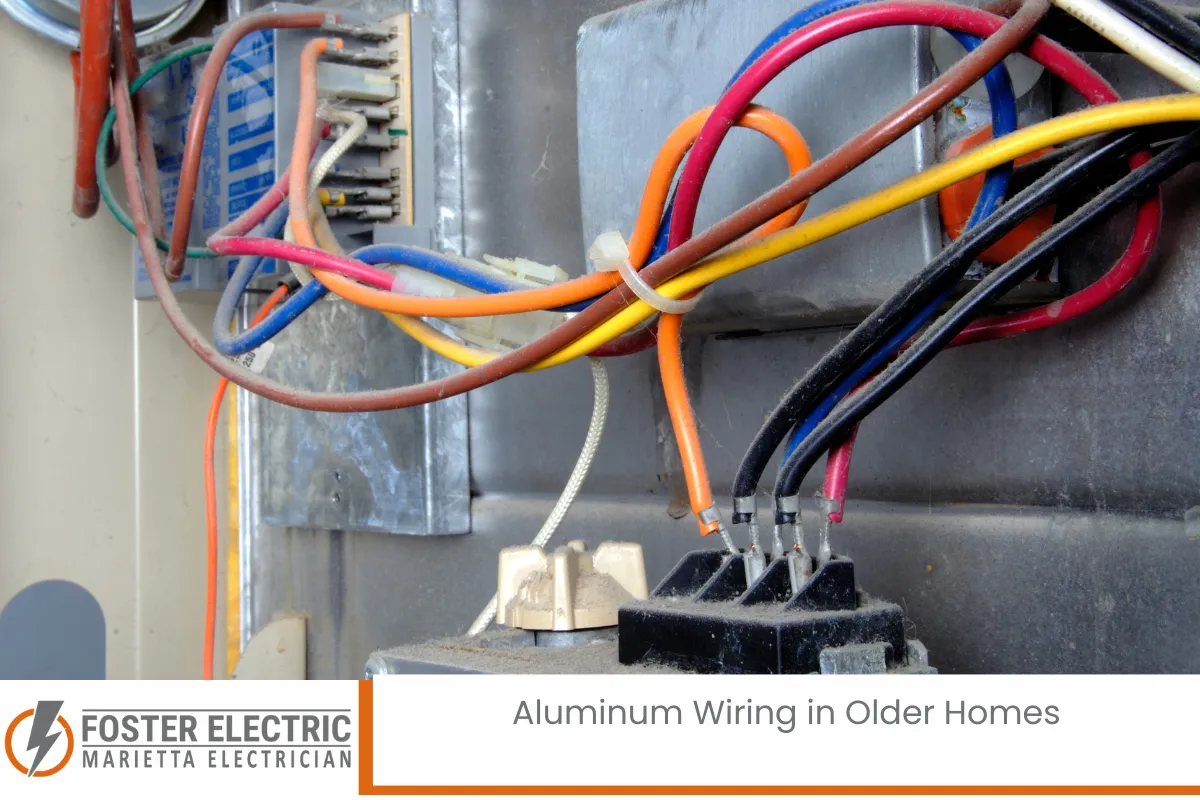
Homes built in the late 1960s and early 1970s in Elizabeth were often wired with aluminum instead of copper. While aluminum conducts electricity, it expands and contracts more with temperature changes, which can cause connections to loosen over time.
Issues associated with aluminum wiring include:
- Higher risk of arcing and fire
- Corrosion at connections
- Difficulty connecting to modern devices
An electrician may suggest replacing aluminum wires with copper or using special connectors approved for aluminum-to-copper connections to ensure long-term safety.
No GFCI Protection in Wet Areas
Ground Fault Circuit Interrupters (GFCIs) are special outlets designed to cut power instantly when they detect a fault, such as moisture interfering with electricity. GFCIs are now required by electrical codes in areas like:
- Bathrooms
- Kitchens
- Laundry rooms
- Garages
- Outdoor outlets
If your home doesn’t have GFCI outlets in these spaces, it’s more vulnerable to electrical shocks and short circuits. Upgrading to GFCIs is a quick and straightforward job for a professional electrician, making a significant difference in home safety.
Rodent-Chewed Wiring
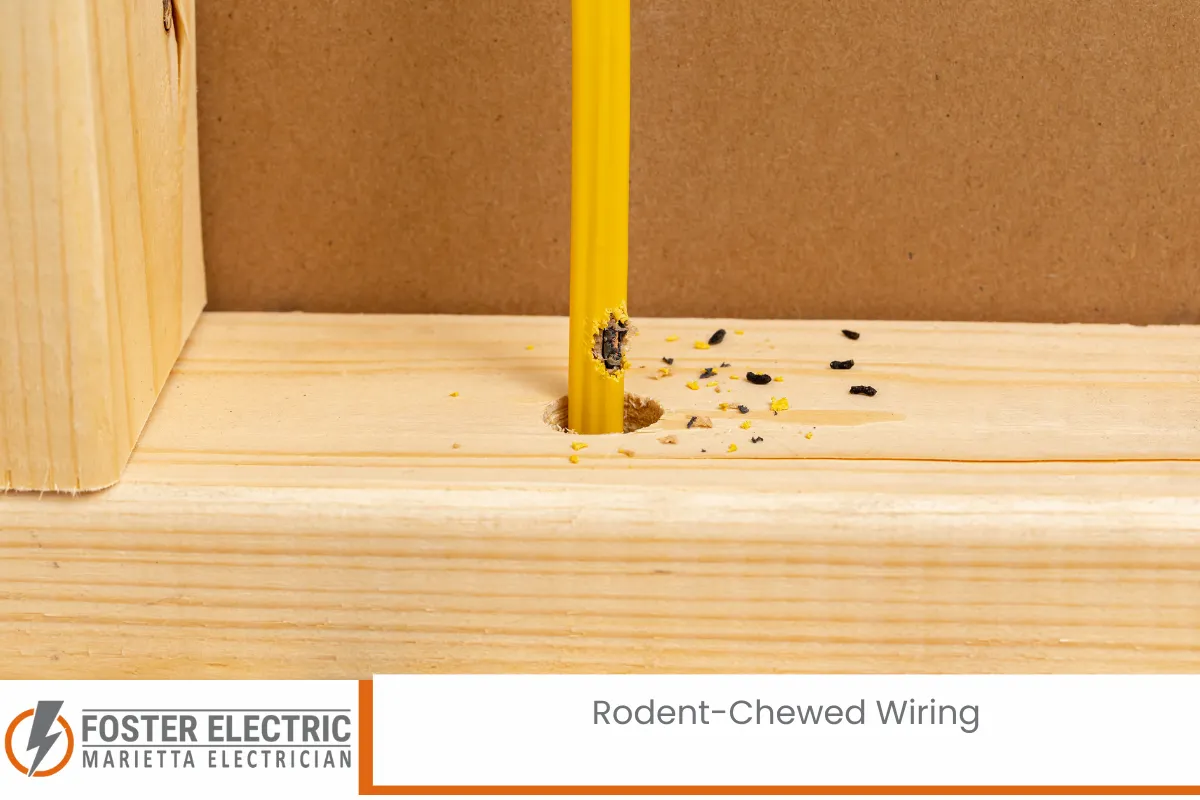
Pests like mice and squirrels often chew on wiring hidden inside walls and attics. This damage is often difficult to detect until it causes a problem, such as a power outage or a burning smell.
Chewed wiring can lead to:
- Exposed copper conductors
- Sparks and shorts
- Intermittent power loss
Suppose you’ve had pest issues in the past. In that case, it’s a good idea to have an electrician inspect your wiring, especially in attics, basements, and crawl spaces.
Outdated Electrical Panels
Your home’s electrical panel is the heart of the system, managing power distribution. Panels older than 25–30 years may not meet current demands and safety standards. Older models might still use fuses instead of breakers, and many have limited capacity.
Warning signs of a failing panel include:
- Tripping breakers
- Burn marks around breakers
- A humming or buzzing sound
- No room for new circuits
Replacing or upgrading your electrical panel ensures you have sufficient power for modern appliances and prevents the risk of overloading.
Electrical Code Compliance in Elizabeth, Georgia
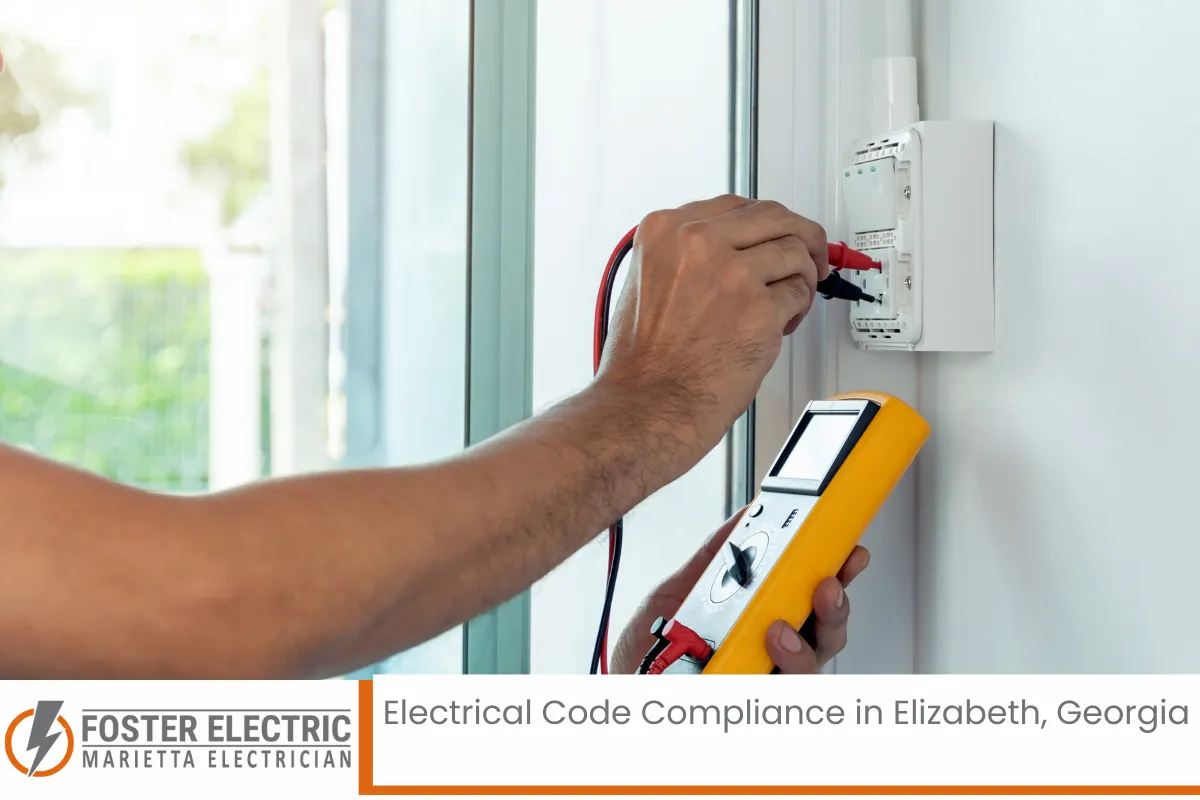
Every home in Elizabeth must meet the standards set by the National Electrical Code (NEC), which is adopted statewide in Georgia. Local municipalities may have additional safety rules. Homes that aren’t up to code may face insurance issues or hazards when selling or renovating.
Key requirements include:
- GFCI protection
- Tamper-resistant outlets
- Proper wire sizing
- Licensed electricians for major updates
An inspection from a certified professional can help ensure your home complies with all regulations.
Why Electrical Safety Should Be a Priority
Electrical hazards don’t always appear to be dangerous. A loose outlet, flickering light, or warm switch may seem harmless at first, but they can pose significant risks. However, these small signs can lead to more significant problems if left unchecked. Fire departments across Georgia report hundreds of home fires each year caused by electrical faults—many of which could’ve been avoided with early detection.
Maintaining your electrical system isn’t just about avoiding emergencies. It also means better performance, energy savings, and peace of mind for your household. Taking the time to address these signs early is an investment in both your property and your safety.
What to Do If You Suspect Unsafe Wiring
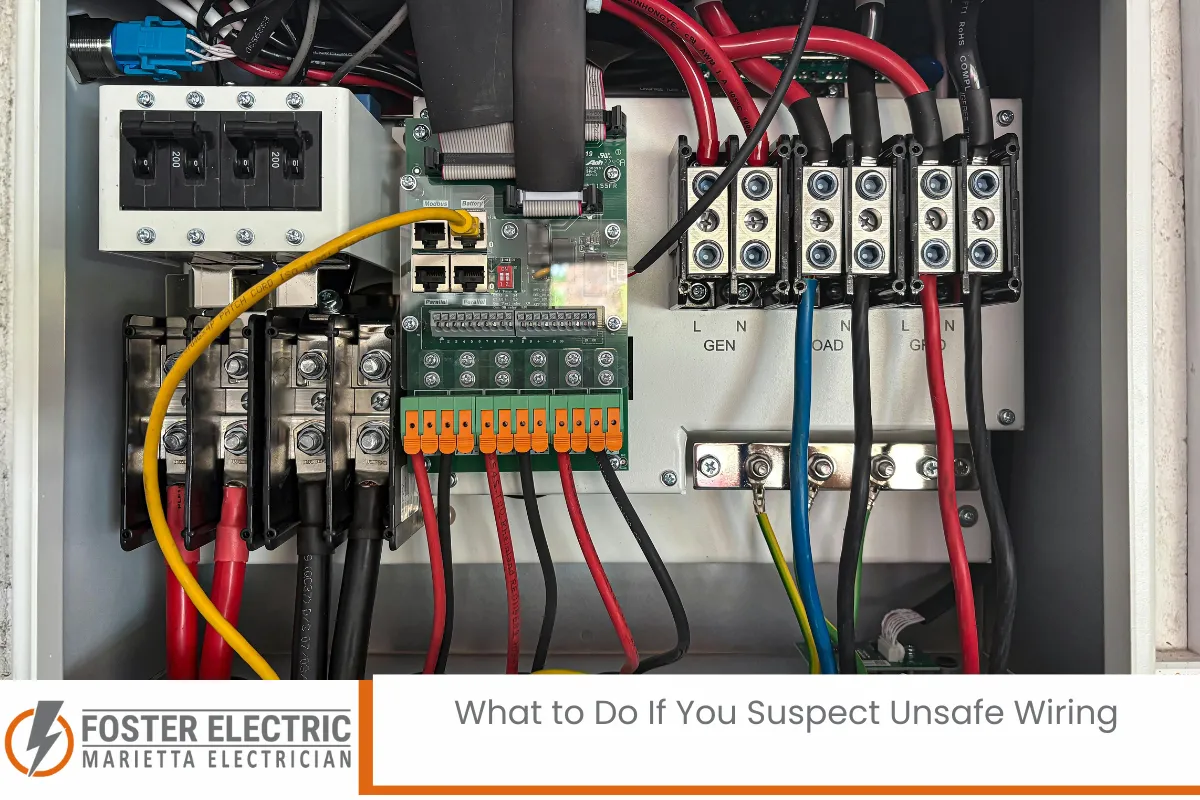
The smartest first step is to call a licensed electrician for an inspection. A trained eye can catch problems you can’t see, like deteriorating wires inside walls or overloaded circuits hidden behind your panel.
From there, you’ll receive recommendations that may include:
- Outlet and switch replacement
- Full or partial rewiring
- Circuit breaker upgrades
- Adding GFCI and AFCI protection
Trying to fix electrical problems without training is dangerous. Trust a qualified professional to keep your home safe and up to standard.
Don’t Overlook the Early Signs of Wiring Trouble
Electrical problems rarely fix themselves. An electrician will confirm that minor warning signs, such as flickering lights, warm outlets, or buzzing noises, are often just the beginning. Left untreated, these symptoms can lead to major hazards, including fires, shocks, and expensive damage to your appliances or home structure. That’s why recognizing the signs of unsafe wiring early and responding promptly is crucial.
Every home in Elizabeth deserves a safe and reliable electrical system. Whether your home is new or several decades old, keeping your wiring in top shape should be a priority. Regular inspections, timely repairs, and updates that meet modern safety standards are crucial for protecting your family and investment. Make electrical safety a part of your home maintenance routine, and take action at the first sign of trouble.
Elizabeth Electrician – Foster Electric
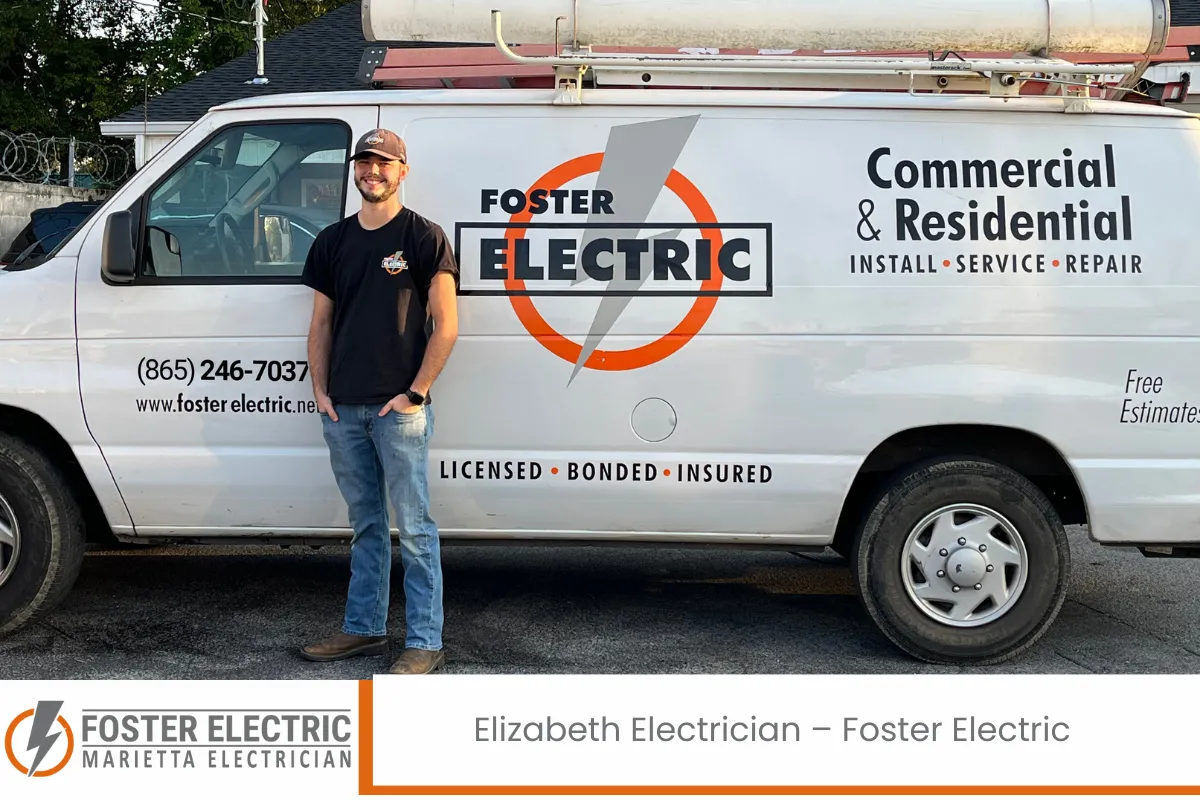
Foster Electric provides dependable electrician services in Elizabeth, Georgia. From simple wiring repairs to full system upgrades, every project is handled with care to ensure safety and proper function. Whether it’s a home or a business, the goal is always to deliver work that meets current codes and provides lasting results.
We also provide a comprehensive range of electrical services, including maintenance, new installations, panel upgrades, and energy-efficient upgrades. With over 20 years of local experience, the team focuses on practical solutions that make homes safer and more efficient. For reliable help with any electrical issue, call (404) 855-4797 today!
Frequently Asked Questions About Unsafe Electrical Wiring
1. What causes electrical fires in older homes, and how can I prevent them?
Electrical fires often originate from hidden issues, such as outdated electrical wiring, overloaded circuit breakers, or damaged components. In older homes, aluminum wiring is a recognized fire hazard because it expands and contracts more than copper, resulting in loose connections. Other common culprits include:
- Frayed cords or extension cords under rugs
- Overloaded breaker panels
- Outdated fuse boxes
- Space heaters connected to faulty electrical sources
To prevent these hazards:
- Schedule a professional electrical inspection every 3 to 5 years.
- Replace or upgrade old breaker panels and light switches.
- Avoid overusing extension cords or plugging too many electrical appliances into one outlet.
- Install smoke detectors and smoke alarms in every room of your home.
Investing in updated outlet covers, testing your ground pins, and using proper safety training measures will reduce fire hazards and keep your home protected.
2. How do I know if my electrical cords or outlets are a safety hazard?
Electrical cords and outlets can turn into serious fire hazards when they’re damaged, improperly used, or not up to code.
Warning signs include:
- Cracked, burned, or frayed cords
- Outlets that are hot to the touch
- A missing or broken ground pin
- Plugs that spark when inserted
These issues increase the risk of electrical shorts, which can lead to arc fault conditions—sparking or heat buildup in wires that can ignite nearby materials.
Some quick safety checks you can do include:
- Replace damaged electrical cords immediately.
- Never run extension cords under rugs or furniture.
- Use outlet covers in homes with children to prevent electrical hazards.
- Avoid using outlets that feel loose or wobbly.
An electrician can help test your system for hidden electrical hazards. Consider upgrading outlets to include ground fault and arc fault protection to reduce the risk of electrical fires.
3. Why does my circuit breaker keep tripping, and is it dangerous?
A circuit breaker is a safety device that interrupts the flow of electricity when an issue occurs.
Frequent tripping usually signals:
- Overloaded circuits (too many electrical appliances on one line)
- Damaged or loose electrical wiring
- A defective breaker panel or individual breaker
- Ground faults or arc fault conditions
Yes, it can be dangerous. A tripping breaker means the system is trying to prevent an electrical fire or electrical shock.
Here’s how to respond:
- Unplug appliances from the affected circuit.
- Check for signs of burning, smoke, or heat near outlets.
- Avoid using space heaters or high-wattage devices until an electrician inspects the system.
- Never replace a breaker with one of higher amperage without consulting a professional.
Suppose your home still has a fuse box. In that case, it’s even more important to upgrade to a modern panel for improved electrical safety.
4. Are generators safe to use during power outages in Elizabeth, Georgia?
Portable generators are helpful during outages, but they also pose electrical hazards if not used correctly.
Common mistakes include:
- Running generators indoors (carbon monoxide risk)
- Plugging them directly into a wall outlet (backfeeding power lines)
- Overloading circuits with too many electrical appliances
To use generators safely:
- Always operate them outdoors, far from windows or doors.
- Use heavy-duty, grounded electrical cords rated for generator use.
- Avoid running sensitive devices without surge protection.
- Don’t exceed the generator’s wattage capacity.
Professional generator services can help you install a transfer switch, which isolates the generator from the power line, ensuring safe operation. Ensure your generator setup is included in your home’s electrical inspection checklist to minimize fire risks.
5. What’s the difference between a GFCI and an AFCI, and do I need both?
Yes, both serve different roles in electrical safety. A GFCI (Ground Fault Circuit Interrupter) protects people from shock. In contrast, an AFCI (Arc Fault Circuit Interrupter) protects homes from electrical fires.
- GFCI outlets are required in areas with high moisture content, including bathrooms, kitchens, garages, and outdoor spaces.
- AFCI breakers detect dangerous arcing conditions, common in damaged electrical cords or aging electrical wiring.
Both types of protection are now integral to modern code requirements, particularly in new construction.
Here’s why you need them:
- GFCIs react within milliseconds to stop shocks.
- AFCIs monitor for electrical shorts or arcs and prevent fire hazards before they start.
If your home doesn’t have these installed—especially if you still use a fuse box—consult a licensed electrician for upgrades. Proper installation of both systems significantly lowers the risk of electrical fires, especially in older homes with aluminum wiring or outdated panels.
Read more: Common Fire Hazards in Old Wiring Found by Electricians in Elizabeth, Georgia

